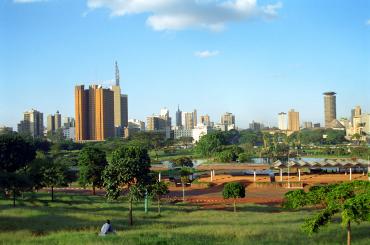

Edward Miguel
Distinguished Professor of Economics, University of California, Berkeley
Edward Miguel is the Distinguished Professor of Economics, and Oxfam Professor in Environmental and Resource Economics at the University of California, Berkeley, where he has taught since 2000. Born in New York City and raised in New Jersey, he earned S.B. degrees in both Economics and Mathematics from MIT, and received a Ph.D. in Economics from Harvard University, where he was a National Science Foundation Fellow. Ted's main research focus is African economic development, including work on the economic causes and consequences of violence; the impact of ethnic divisions on local collective action; and interactions between health, education, and productivity for the poor. He has conducted field work in Kenya, Sierra Leone, Tanzania, and India.
Ted is a Faculty Research Associate of the National Bureau of Economic Research, Associate Editor of the Quarterly Journal of Economics, Journal of Development Economics and Review of Economics and Statistics, recipient of the 2005 Alfred P. Sloan Fellowship, and winner of the 2005 Kenneth J. Arrow Prize awarded annually by the International Health Economics Association for the Best Paper in Health Economics. Ted is a regular commentator on NPR's Marketplace. His first book, Economic Gangsters: Violence, Corruption, and the Poverty of Nations (coauthored with Ray Fisman), was published by Princeton University Press in October 2008.
Recent work by Edward Miguel
-

Post-harvest loans can stop farmers selling low and buying high
Credit constraints prevent farmers from arbitraging seasonal price fluctuations; integrated financial solutions can enable grain storage, channel returns into forward-looking investments, and smooth seasonal prices, yielding benefits for the broader ...
Published 25.02.25
-

How low demand constrains productivity and economic development
Evidence from Kenya shows that small firms have a lot of ‘slack’, i.e. they could produce substantially more output without having to hire additional workers, buy additional machines, or raise prices, simply by reducing their idle time. Why is slack ...
Published 06.01.25
-

Do cash transfers cause inflation?
Evidence from cash transfers at scale in Kenya suggests that demand-side policies or stimulus may be very effective at raising output without creating inflationary pressure when there is a lot of ‘slack’ in the economy.
Published 06.01.25
-

Climate change causes conflict: How can policy respond?
Climate change is projected to cause an increase in numerous forms of violent human behaviour. Policies like a robust social safety net and political inclusion can help ensure a more peaceful future.
Published 13.12.24
-

Deworming improves lives across generations
Data tracking children in Kenya since they received deworming treatment over twenty years ago reveals that the benefits of deworming extend into the next generation
Published 23.11.23
-

Scaling up agricultural policy interventions: Evidence from Uganda
A new methodology combining experimental data with a quantitative model sheds light on the household-level and distributional effects of scaling up agricultural policies.
Published 16.01.23
-

Does household electrification supercharge economic development?
To what extent do the poorest rural households in sub-Saharan Africa benefit from residential electrification investments?
Published 27.05.20
-

RCTs in the long run
RCTs have revolutionised development policy, but do the interventions that work in the short run have a benefit 10 or 20 years later?
Published 20.11.19
-

Can electricity access help solve poverty in Kenya?
Ensuring sufficient investment to establish reliable access to comprehensive basic services, beyond electricity, is needed for impacts to be achieved
Published 29.07.19